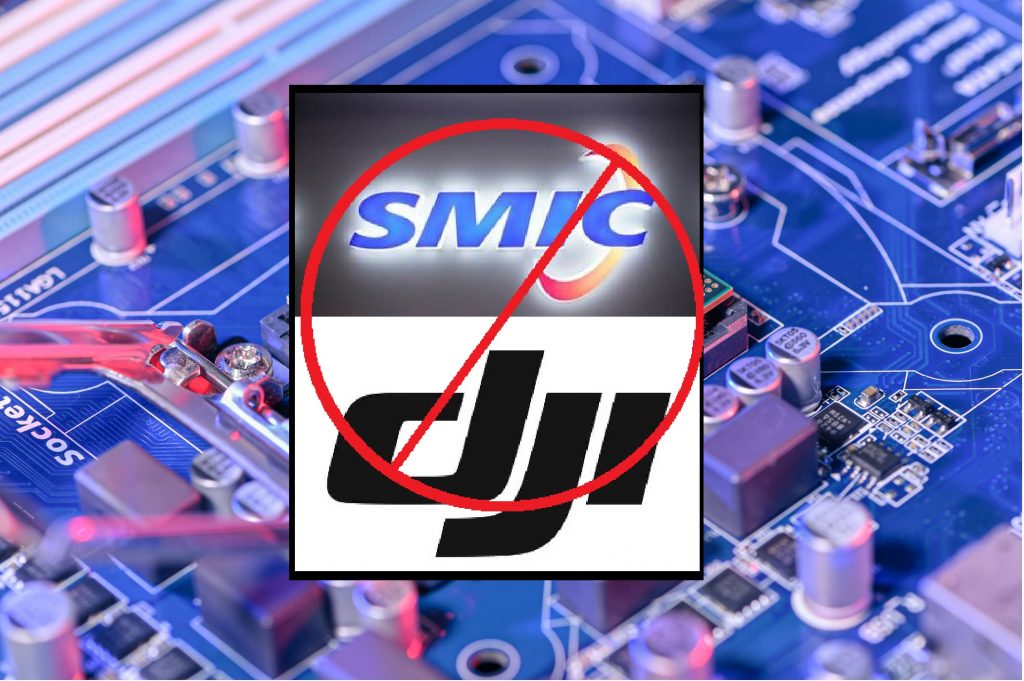
The US Bureau of Industry and Security (BIS) in the Department of Commerce (Commerce) added Semiconductor Manufacturing International Corporation (SMIC) of China to the Entity List. “BIS is taking this action to protect U.S. national security”, said the Commerce Department in a press release. The department said that their action stems from China’s military-civil fusion (MCF) doctrine and evidence of activities between SMIC and entities of concern in the Chinese military industrial complex.
“We will not allow advanced U.S. technology to help build the military of an increasingly belligerent adversary. Between SMIC’s relationships of concern with the military industrial complex, China’s aggressive application of military civil fusion mandates and state-directed subsidies, SMIC perfectly illustrates the risks of China’s leverage of U.S. technology to support its military modernization,” said Commerce Secretary Wilbur Ross.
“Entity List restrictions are a necessary measure to ensure that China, through its national champion SMIC, is not able to leverage U.S. technologies to enable indigenous advanced technology levels to support its destabilizing military activities,” added Ross.
SMIC, which was founded in 2000 in Shanghai, is among the top five semiconductor manufacturers in the world, according to a report from the United States International Trade Commission, or USITC. DJI manufactures commercial unmanned aerial vehicles (drones) for aerial photography and videography. It also designs and manufactures camera gimbals, action cameras, camera stabilizers, flight platforms and propulsion systems and flight control systems.
The Commerce Department said it was adding DJI for enabling high-tech surveillance in China, which the agency called a human rights abuse. The additions also include several construction companies, among them China Communications Construction Co., for helping China militarize disputed territory it has occupied in the South China Sea.
Also added to the list were several universities, in Beijing, Nanjing and Tianjin, for alleged actions including trade-secret theft or “acquiring and attempting to acquire U.S.-origin items in support of programs for the People’s Liberation Army.”
The Entity List designation limits SMIC’s ability to acquire certain U.S. technology by requiring U.S. exporters to apply for a license to sell to the company. Items uniquely required to produce semiconductors at advanced technology nodes—10 nanometers or below—will be subject to a presumption of denial to prevent such key enabling technology from supporting China’s military-civil fusion efforts.
BIS also added more than sixty other entities to the Entity List for actions deemed contrary to the national security or foreign policy interest of the United States. These include entities in China that enable human rights abuses (in Xinjiang), entities that supported the militarization and unlawful maritime claims in the South China Sea, entities that acquired U.S.-origin items in support of the People’s Liberation Army’s programs, and entities and persons that engaged in the theft of U.S. trade secrets, says the Commerce Department press release.
The Entity List is a tool utilized by BIS to restrict the export, re-export, and transfer (in-country) of items subject to the Export Administration Regulations (EAR) to persons (i.e., individuals, organizations, and companies) reasonably believed to be involved, or to pose a significant risk of becoming involved, in activities contrary to the national security or foreign policy interests of the United States. Additional license requirements apply to exports, re-exports, and transfers (in-country) of items subject to the EAR to listed entities, and the availability of most license exceptions is limited.
China’s foreign ministry has responded to the US move and has urged the United States to “stop its wrong behavior of oppression of foreign companies.” According to a Reuters report on Friday, the Chinese foreign ministry said that the U.S. move was imminent. “The U.S. side claims that it champions market economy and fair competition, but its politicization of trade issues goes against its words as well as international trade rules and is detrimental to the interests of both Chinese and American companies,” Foreign Ministry spokesman Wang Wenbin said.
